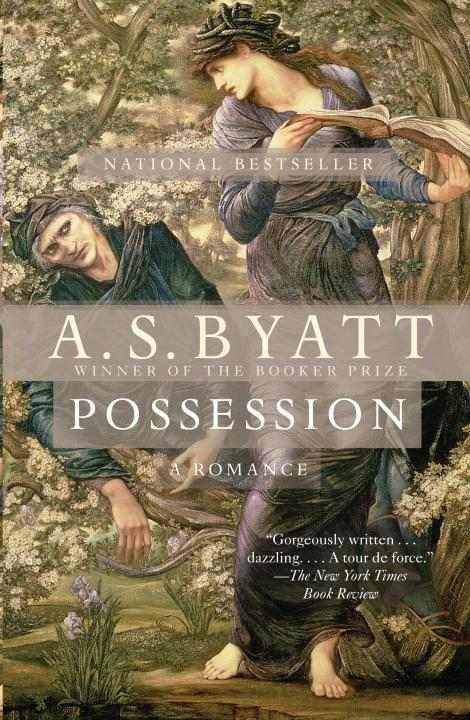
What Books Are Better Read Slowly?
I’ve always been a fast reader. When I was a kid, I used to choose my library books based on how thick they were; we only went to the library once every couple of weeks, so I needed to be sure I had enough reading material to last.
Now that I read and write about books as a side job/hobby, it continues to benefit me to read quickly. But recently I’ve had an experience that reminded me the importance of taking the time to read slowly when a book demands that kind of attention.
A few months ago, a bookish friend and I decided to host an online readalong of A.S. Byatt’s Possession, a book we’ve both tried and failed to read multiple times. We figured that announcing to the online world we were reading the book and committing to weekly updates on our blogs would help us muddle through the story, about 140 pages per week.
I’ve never organized or participated in an online readalong (despite my interest and best intentions), so this was a new experience for me. And although there are lots of things I could say about it, the feature that is sticking out most to me now — just a few days before our final check-in — is the difference it has made to deliberately read slowly.
In addition to reading fast, I’ve become a bit of a book polygamist — I usually have at least one fiction and one nonfiction read going at the same time. And in a good reading month, I can finish both books in about a week. But this month I’ve had my one fiction read — Possession — stretch through four weeks. I can’t think of the last book that took me that long to finish.
As I’ve discovered, Possession was a perfect book to read in this extended way. Possession is a book that needs to be read slowly. The structure — a mixture of narrative, poetry, journal entries, letters, short stories, and scholarly texts — requires a reader to approach the text deliberately. It’s not that the book is difficult, exactly, more that it’s easier to appreciate what Byatt is doing when you spend time looking at it. I’d simply forgotten about this joy of challenge in my sometimes frenetic reading pace.
But I also could not have read just any book like this. I would have plowed through a more plot-heavy book during a single week, unable to put it down. I also would have gotten bored with a more simply structured book and not felt compelled to pick it back up after each weekly check-in. Possession, rather unintentionally, was the perfect book for this experience.
I’m not sure I’m quite ready for another online readalong just yet, but when I do I’m not sure what book might work. Have any of you participated in an online book club? How was it structured? What books might work for a stretched out discussion like this one?
_________________________
Sign up for our newsletter to have the best of Book Riot delivered straight to your inbox every two weeks. No spam. We promise.







